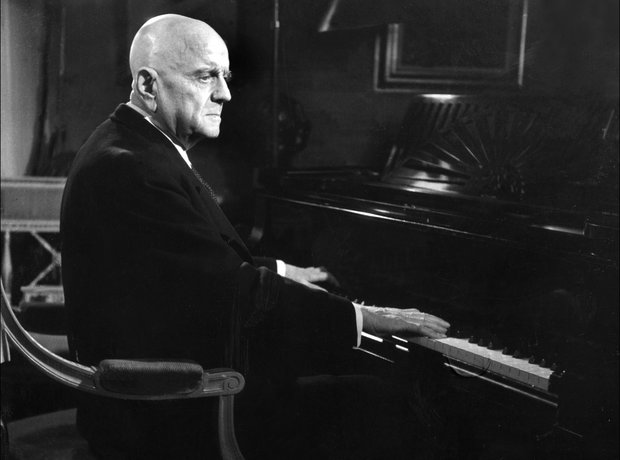Jean Sibelius was a towering figure in the realm of classical music, celebrated for his evocative symphonies, tone poems, and chamber music. Born Johan Julius Christian Sibelius on December 8, 1865, in Hämeenlinna, Finland, he would later adopt the French form of his name, Jean, for its elegance and international appeal.
Sibelius came from a Swedish-speaking family in Finland, which was then a Grand Duchy of the Russian Empire. He displayed an early aptitude for music, learning the violin and piano at a young age. However, it was not until he attended the University of Helsinki to study law that his passion for music truly flourished. He devoted much of his time to composing, and his talent soon outshone his interest in law.
- Early Musical Prowess: Jean Sibelius showed early promise in music, learning to play violin and piano at a young age. His natural talent was evident, and by his teenage years, he was composing his own music.
- National Hero: Sibelius is often regarded as Finland’s national composer. His compositions, particularly pieces like “Finlandia” and “Karelia Suite,” played a significant role in fostering Finnish national identity during the country’s struggle for independence from Russia.
- Education Abroad: Sibelius studied music in Helsinki before venturing to Berlin and Vienna for further education. In Vienna, he studied composition with renowned teachers such as Robert Fuchs and Karl Goldmark.
- Symphonic Master: Sibelius is best known for his symphonic works, particularly his seven symphonies. His symphonies are celebrated for their innovative structure, evocative melodies, and deep emotional resonance.
- Nature’s Influence: The Finnish landscape, with its vast forests, lakes, and stark seasons, had a profound impact on Sibelius’s music. He often drew inspiration from nature, infusing his compositions with its beauty and grandeur.
- Finnish Folklore: Sibelius incorporated elements of Finnish folklore and mythology into his music, enriching his compositions with a sense of national identity and cultural heritage. This can be heard prominently in works like “The Swan of Tuonela” and the “Lemminkäinen Suite.”
- Silent Years: Following the completion of his Seventh Symphony in 1924, Sibelius entered a period of creative silence that lasted nearly three decades. Despite this, he remained a revered figure in Finland and continued to receive international acclaim.
- International Recognition: Sibelius’s music garnered widespread acclaim beyond Finland’s borders. He received numerous awards and honors, including the prestigious Sibelius Prize, the Royal Philharmonic Society’s Gold Medal, and an invitation to join the American Academy of Arts and Letters.
- Legacy and Influence: Sibelius’s impact on the world of classical music is profound. His works continue to be performed by orchestras worldwide, and his innovative approach to composition has inspired generations of composers.
- Lasting Legacy: Sibelius’s legacy extends far beyond his own lifetime. His music remains a cornerstone of the classical repertoire, cherished for its beauty, emotional depth, and profound connection to the Finnish spirit. Today, his compositions continue to captivate audiences and inspire musicians around the globe.


Comments are closed